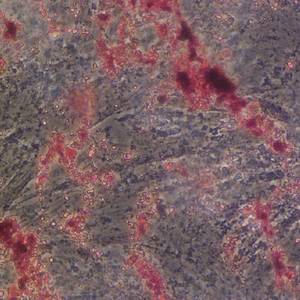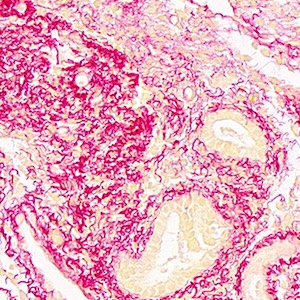Apigenin induces dermal collagen synthesis via smad2/3 signaling pathway

Submitted: 28 November 2014
Accepted: 9 March 2015
Published: 13 April 2015
Accepted: 9 March 2015
Abstract Views: 2538
PDF: 1167
HTML: 865
HTML: 865
Publisher's note
All claims expressed in this article are solely those of the authors and do not necessarily represent those of their affiliated organizations, or those of the publisher, the editors and the reviewers. Any product that may be evaluated in this article or claim that may be made by its manufacturer is not guaranteed or endorsed by the publisher.
All claims expressed in this article are solely those of the authors and do not necessarily represent those of their affiliated organizations, or those of the publisher, the editors and the reviewers. Any product that may be evaluated in this article or claim that may be made by its manufacturer is not guaranteed or endorsed by the publisher.
Similar Articles
- L.O.C. de Moraes, F.R. Lodi, T. S. Gomes, C.T.F. Oshima, S.R. Marques, C.L.P. Lancellotti, J.F. Rodriguez-Vázquez, J.R. Mérida-Velasco, L.G. Alonso, Immunohistochemical expression of types I and III collagen antibodies in the temporomandibular joint disc of human foetuses , European Journal of Histochemistry: Vol. 55 No. 3 (2011)
- G. Orsini, A. Majorana, A. Mazzoni, A. Putignano, M. Falconi, A. Polimeni, L. Breschi, Immunocytochemical detection of dentin matrix proteins in primary teeth from patients with dentinogenesis imperfecta associated with osteogenesis imperfecta , European Journal of Histochemistry: Vol. 58 No. 4 (2014)
- S. Shibata, Y. Sakamoto, O. Baba, C. Qin, G. Murakami, B.H. Cho, An immunohistochemical study of matrix proteins in the craniofacial cartilage in midterm human fetuses , European Journal of Histochemistry: Vol. 57 No. 4 (2013)
- Tao Wu, Shikui Wu, Hailu Jiao, Jun Feng, Xiang Zeng, Overexpression of hsa_circ_0001861 inhibits pulmonary fibrosis through targeting miR-296-5p/BCL-2 binding component 3 axis , European Journal of Histochemistry: Vol. 67 No. 4 (2023)
- A. Vetuschi, A. D'Alfonso, R. Sferra, D. Zanelli, S. Pompili, F. Patacchiola, E. Gaudio, G. Carta, Changes in muscularis propria of anterior vaginal wall in women with pelvic organ prolapse , European Journal of Histochemistry: Vol. 60 No. 1 (2016)
- C. Fede, G. Albertin, L. Petrelli, M.M. Sfriso, C. Biz, R. De Caro, C. Stecco, Expression of the endocannabinoid receptors in human fascial tissue , European Journal of Histochemistry: Vol. 60 No. 2 (2016)
- C. Bai, D. Wang, C. Li, D. Jin, C. Li, W. Guan, Y. Ma, Establishment and biological characteristics of a Jingning chicken embryonic fibroblast bank , European Journal of Histochemistry: Vol. 55 No. 1 (2011)
- C. Severi, R. Sferra, A. Scirocco, A. Vetuschi, N. Pallotta, A. Pronio, R. Caronna, G. Di Rocco, E. Gaudio, E. Corazziari, P. Onori, Contribution of intestinal smooth muscle to Crohn's disease fibrogenesis , European Journal of Histochemistry: Vol. 58 No. 4 (2014)
- M. Lehmann, F. Martin, K. Mannigel, K. Kaltschmidt, U. Sack, U. Anderer, Three-dimensional scaffold-free fusion culture: the way to enhance chondrogenesis of in vitro propagated human articular chondrocytes , European Journal of Histochemistry: Vol. 57 No. 4 (2013)
- C. Fede, G. Albertin, L. Petrelli, M.M. Sfriso, C. Biz, R. De Caro, C. Stecco, Hormone receptor expression in human fascial tissue , European Journal of Histochemistry: Vol. 60 No. 4 (2016)
You may also start an advanced similarity search for this article.

 https://doi.org/10.4081/ejh.2015.2467
https://doi.org/10.4081/ejh.2015.2467















